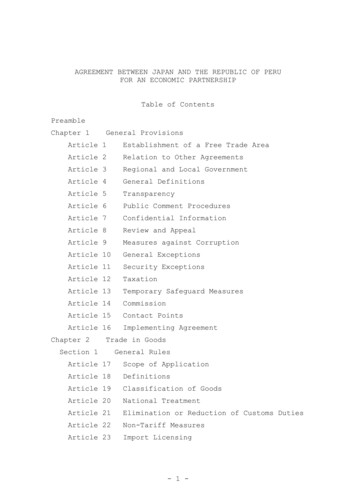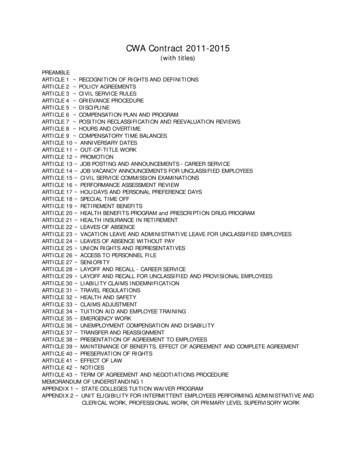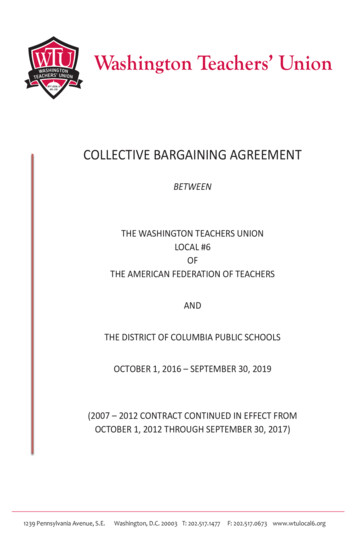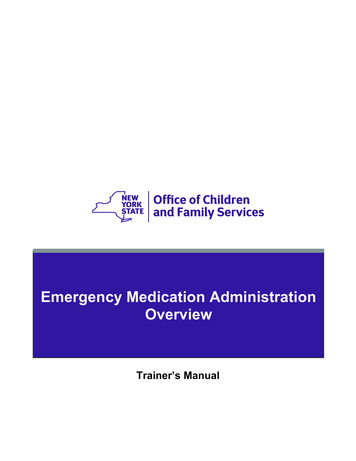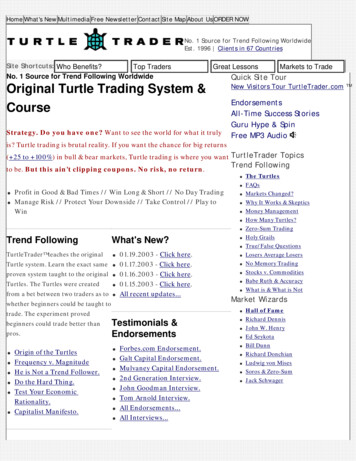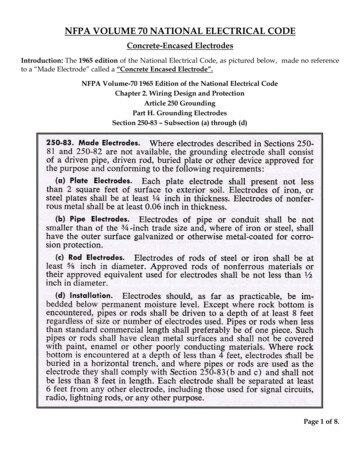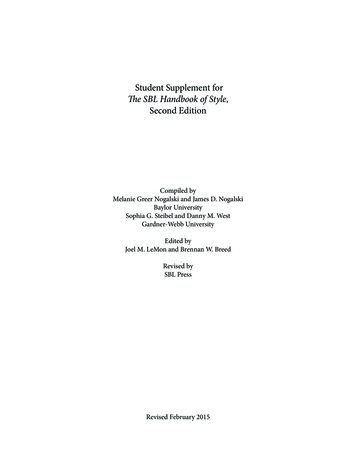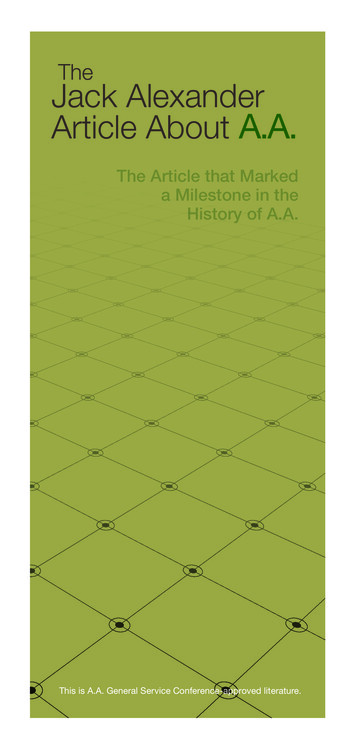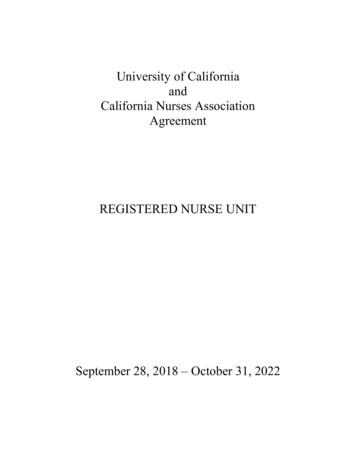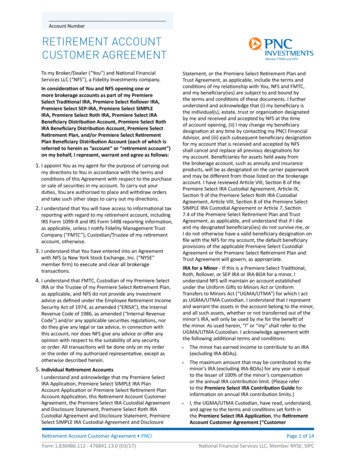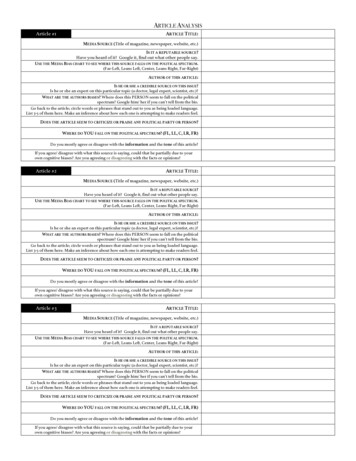
Transcription
ARTICLE ANALYSISArticle #1ARTICLE TITLE:MEDIA SOURCE (Title of magazine, newspaper, website, etc.)IS IT A REPUTABLE SOURCE?Have you heard of it? Google it, find out what other people say.USE THE MEDIA BIAS CHART TO SEE WHERE THIS SOURCE FALLS ON THE POLITICAL SPECTRUM.(Far-Left, Leans Left, Center, Leans Right, Far-Right)AUTHOR OF THIS ARTICLE:IS HE OR SHE A CREDIBLE SOURCE ON THIS ISSUE?Is he or she an expert on this particular topic (a doctor, legal expert, scientist, etc.)?WHAT ARE THE AUTHORS BIASES? Where does this PERSON seem to fall on the politicalspectrum? Google him/ her if you can’t tell from the bio.Go back to the article; circle words or phrases that stand out to you as being loaded language.List 3-5 of them here. Make an inference about how each one is attempting to make readers feel.DOES THE ARTICLE SEEM TO CRITICIZE OR PRAISE ANY POLITICAL PARTY OR PERSON?WHERE DO YOU FALL ON THE POLITICAL SPECTRUM? (FL, LL, C, LR, FR)Do you mostly agree or disagree with the information and the tone of this article?If you agree/ disagree with what this source is saying, could that be partially due to yourown cognitive biases? Are you agreeing or disagreeing with the facts or opinions?Article #2ARTICLE TITLE:MEDIA SOURCE (Title of magazine, newspaper, website, etc.)IS IT A REPUTABLE SOURCE?Have you heard of it? Google it, find out what other people say.USE THE MEDIA BIAS CHART TO SEE WHERE THIS SOURCE FALLS ON THE POLITICAL SPECTRUM.(Far-Left, Leans Left, Center, Leans Right, Far-Right)AUTHOR OF THIS ARTICLE:IS HE OR SHE A CREDIBLE SOURCE ON THIS ISSUE?Is he or she an expert on this particular topic (a doctor, legal expert, scientist, etc.)?WHAT ARE THE AUTHORS BIASES? Where does this PERSON seem to fall on the politicalspectrum? Google him/ her if you can’t tell from the bio.Go back to the article; circle words or phrases that stand out to you as being loaded language.List 3-5 of them here. Make an inference about how each one is attempting to make readers feel.DOES THE ARTICLE SEEM TO CRITICIZE OR PRAISE ANY POLITICAL PARTY OR PERSON?WHERE DO YOU FALL ON THE POLITICAL SPECTRUM? (FL, LL, C, LR, FR)Do you mostly agree or disagree with the information and the tone of this article?If you agree/ disagree with what this source is saying, could that be partially due to yourown cognitive biases? Are you agreeing or disagreeing with the facts or opinions?Article #3ARTICLE TITLE:MEDIA SOURCE (Title of magazine, newspaper, website, etc.)IS IT A REPUTABLE SOURCE?Have you heard of it? Google it, find out what other people say.USE THE MEDIA BIAS CHART TO SEE WHERE THIS SOURCE FALLS ON THE POLITICAL SPECTRUM.(Far-Left, Leans Left, Center, Leans Right, Far-Right)AUTHOR OF THIS ARTICLE:IS HE OR SHE A CREDIBLE SOURCE ON THIS ISSUE?Is he or she an expert on this particular topic (a doctor, legal expert, scientist, etc.)?WHAT ARE THE AUTHORS BIASES? Where does this PERSON seem to fall on the politicalspectrum? Google him/ her if you can’t tell from the bio.Go back to the article; circle words or phrases that stand out to you as being loaded language.List 3-5 of them here. Make an inference about how each one is attempting to make readers feel.DOES THE ARTICLE SEEM TO CRITICIZE OR PRAISE ANY POLITICAL PARTY OR PERSON?WHERE DO YOU FALL ON THE POLITICAL SPECTRUM? (FL, LL, C, LR, FR)Do you mostly agree or disagree with the information and the tone of this article?If you agree/ disagree with what this source is saying, could that be partially due to yourown cognitive biases? Are you agreeing or disagreeing with the facts or opinions?
English9 - Ms. DickersonWork from Home Packet #1Hello students! I KNOW you are excited to receive this packet of schoolwork. JBut since we aren’t sure how long this is going to last, and we don’t want you (or me) to have to go to school all summer, we are using thesepackets to keep the learning going while we are unable to come to school in person. This packet is intended to cover two weeks’ worth ofwork; so, take your time and do it well.*YOU ARE NOT EXPECTED TO MAIL THIS WORK BACK. YOU JUST NEED TO KEEP AHOLD OF IT We’ll start with a Propaganda and Bias Study Guide to introduce some NEW material. Just like the last one you did (over the 1920s),there are several paragraphs of information with some words removed. There is a word bank for each page, and the answers CAN BEFIGURED OUT JUST BY READING AND USING THE CONTEXT OF THE SENTENCES OR they are THINGS YOU’VE LEARNED ALREADY THIS YEAR. ItWON’T be necessary to use the internet to complete the study guide. we won’t be able to go over this together to make sure you havethe right answers. SO, you are going to have to really try your best to do it ACCURATELY & then RE-READ it a few times to make sureyou understand it. I’ve also included a Political Spectrum Survey for you to complete and three ARTICLES that “go with” the study guide. You will need toread all three articles and then answer the evaluation and analysis questions for all three. The Great Gatsby: Well, you got out of writing your big research reports, and I bet you thought you were getting out of this book. Nope.I just won’t be there to read it to you. The district has graciously agreed to mail the books to you! I don’t know if you have received ityet - I think they were going to mail it separate from this packet. There is also a PDF version that you can access online & he-great-gatsby.pdf - I will give you a page range that I expect you to read in the twoweek span (see the box below). You can access an audio version on YouTube if you want to have it READ TO YOU, but I would seriouslyrecommend reading (WITH YOUR ACTUAL EYES AND THE ACTUAL TEXT) along with the audio. Otherwise you will be likely to let yourmind wander and miss some important stuff. In the next packet, you will have a brief QUIZ over the material and then anotherassigned page range (25 pages this time; about 35 pages each future packet). The format of the quizzes will be similar to what youare used to from our other books - but I’ll try to make them a little easier since they will be covering more than one chapter at atime, and since I’m not physically there with you. But, honestly, I AM there with you in a sense. contact me. I’ll help you. DON’T PANIC about any of this. If you get confused or stuck, you can contact me. I will be checking my email:Nicole.dickerson@crooksville.k12.oh.us regularly. I will plan to email you and post something on Google Classroom at least once a week messages, announcements, and any resources that I think might help. So, if you can get to the internet, check there for more info.*Do the work (it is required) but also relax and enjoy time with your families. Make good choices & WASH YOUR HANDS.* Ms. DickersonPRead thisinformation sheetPropaganda & BiasStudy GuidePolitical SpectrumSurveyThree Covid-19articlesArticle analysisquestionsThe Great GatsbyREAD Chapter ONE(pages 1-25)
AMERICANS MAY REBEL AGAINST LONG CORONAVIRUS WARBy Patrick BuchananFriday, 20 March 2020 10:00 AM"It's a war," says President Donald Trump of his efforts to contain the coronavirus pandemic, and likening his role to that of "wartime president."New York Gov. Andrew Cuomo welcomed the president's claim to his commander in chief role in the crisis and his resolve, "The president andI agreed yesterday. . . we're fighting the same war — and this is a war."Some measures already taken do call to mind actions in wartime.Commercial airline flights have been reduced or canceled.Schools have been closed. Universities have shut their doors.Where Ford, Chrysler, GM and other great auto companies shifted production to jeeps, tanks and bombers in 1942, U.S. auto factories havetoday been shut down to prevent the spread of the virus.Bars and restaurants are being closed.This month, millions of Americans will be added to unemployment rolls, and millions of senior citizens and elderly have already followedgovernment directives to "self-isolate" or "shelter in place."There is talk of quarantines lasting not days or weeks, as Americans knew in the days of measles, mumps, chickenpox, scarlet fever and polio,but months.While a new social solidarity and spirit of self-sacrifice seem to be manifesting themselves in this pandemic, can it endure?Is the country prepared for months, or years, of social isolation, if that is what is required to win this war?It's a question that needs to be addressed.Consider. The Chinese government, whose word is admittedly suspect, claims to have achieved a deceleration in the daily number of newcoronavirus infections. The South Koreans say they, too, have broken and reversed the momentum of the spread of the virus.On March 3, the number of new cases of the coronavirus reported across South Korea was 852. On St. Patrick's Day, March 17, exactly twoweeks later, the count was 85 new cases— a plunge of 90%.South Korea appears to have "flattened the curve."We Americans, however, are far from that.Exactly how far behind South Korea we are cannot be known until more tens of thousands of Americans are tested, and we learn how manycases of the disease are out there undiscovered and unreported.But whatever the success of Asian nations in containing the virus, are we politically and socially able to impose the same draconian measures?Ordering people to "shelter in place" in their own homes, not just for days or weeks but months — can this be done in a free society, as it canbe done in the surveillance state of Communist China?
NEWSMAX: AMERICANS MAY REBEL (CONT’D)Can mayors and governors of beach towns along the East Coast from Maine to Miami, and the Gulf Coast from Florida to Texas, keep tens ofmillions from gathering on beaches this summer?Last week, we saw college kids cavorting on Florida's beaches, despite warnings that any one among them infected with COVID-19 couldtransmit it to the rest, leading to grave illness and, in some cases, death.Moreover, they could become carriers of the disease to parents and siblings.They did not seem to care. As Prohibition proved, Americans are a rule-breaking people.Scores of thousands are injured in auto accidents and thousands killed each year from driving under the influence of alcohol — despite toughlaws against drunk driving.Since the 1960s, laws against the use of marijuana, cocaine, heroin, fentanyl, have not halted the rampant ingestion of illegal narcotics anddangerous drugs.We are endlessly admonished that climate change poses an existential threat to the planet.But have the elites who profess to believe this given up flying in private jets?Have Americans given up their SUVs or ceased to heat their homes with oil and gas?Are parents going to be able to confine to their homes children whose lives are built around friends on playgrounds? Is the crowd on Martha'sVineyard going to give up socializing to prevent the spread of the coronavirus?In the 1960s, we were told that the correlation between cigarette smoking and lung cancer, emphysema and heart disease, is absolute. Yet 34million Americans continue to risk shortening their lives by smoking.Seniors and elderly, among whom the mortality rate from the coronavirus is the highest —15% of those over 80 in one estimate — may shelterin place for months.But if, in diverse cities, minority communities come out for block parties in summer, are we going to have the police march them back intotheir homes?Do we have enough cops for that?A prediction: The longer the orders to shelter in place and self-isolate remain in force, the greater the probability they will begin to be ignoredand people will take the risks to end their isolation and be with friends.Will Americans suffer in social isolation, inside their own homes for months, while a state-induced Great Depression washes over the land?My guess is that many will rebel.Patrick Buchanan has been an adviser to three presidents, a two-time candidate for the Republican presidential nomination, and the nomineefor the Reform Party in 2000. He was also a founding member of "The McLaughlin Group," which began on NBC, and CNN's "Capital Gang" and"Crossfire." His latest book is: "The Greatest Comeback: How Richard Nixon Rose From Defeat to Create the New Majority."2
INTELLIGENCE REPORTS WARNED ABOUT A PANDEMIC IN JANUARY. TRUMP REPORTEDLY IGNORED THEM.As Trump reportedly received intelligence reports about the seriousness of the coronavirus threat, he continued to downplay its severity in public.By Riley Beggin Mar 21, 2020, 11:20am EDTUS intelligence officials reportedly warned President Donald Trump and Congress about the threats posed by the novel coronavirus beginning in earlyJanuary — weeks before the White House and lawmakers began implementing stringent public health measures and as the president minimized the threat posedby the virus in his tweets and public statements.The fact those warnings were largely disregarded — something first reported by the Washington Post’s Shane Harris, Greg Miller, Josh Dawsey, andEllen Nakashima — suggests Trump administration officials failed to take action that could have prepared the health care system to handle an influx of patients,helped Americans avoid mass social distancing, and saved lives.Top health officials first learned of the virus’ spread in China on January 3, Health and Human Services Secretary Alex Azar said Friday. ThroughoutJanuary and February, intelligence officials’ warnings became more and more urgent, according to the Post — and by early February, much of the Office of theDirector of National Intelligence and the CIA’s intelligence reports were dedicated to warnings about Covid-19.All the while, Trump downplayed the virus publicly, telling the public the coronavirus “is very well under control in our country,” and suggesting warmweather would neutralize the threat the virus poses.The Coronavirus is very much under control in the USA. We are in contact with everyone and all relevant countries. CDC & World Health have been workinghard and very smart. Stock Market starting to look very good to me!Privately, Trump reportedly rebutted health and intelligence officials’ attempts to get him to take action to prepare communities in the US while rebukingofficials who were delivering sober risk assessments.For instance, in late February, when Nancy Messonnier, director of the National Center for Immunization and Respiratory Diseases at the Centers forDisease Control and Prevention (CDC), said, “It’s not a question of if [community spread] will happen, but when this will happen, and how many people in thiscountry will have severe illnesses,” Trump reportedly responded by calling Azar to complain “that Messonnier was scaring the stock markets, according to twosenior administration officials,” the Post reports.In a statement, the administration rebutted the Post’s reporting, calling it part of a attempt by the media and Democrats “to rewrite history” and claiming“President Trump has taken historic, aggressive measures to protect the health, wealth and safety of the American people.”The administration did begin taking some limited action about a month after Azar says the administration first began receiving warnings, blocking noncitizens who had been to China in the last two weeks from entering the country on February 3 — a move public experts have argued at best bought the US time toramp up its testing capabilities it did not use, and at worst had no beneficial effects at all.Trump finally assembled a task force to address the virus, putting Vice President Mike Pence in charge of the effort on February 26, and declared anational emergency on March 13. And, just this week — nearly three months after first receiving warnings from his intelligence officials — the president’s publictone about the crisis shifted: “I’ve always known this is a real — this is a pandemic,” he said Tuesday as he admitted, “[the virus is] not under control for anyplace in the world.”IGNORING INTELLIGENCE REPORTS CONTRIBUTED TO THE COUNTRY BEING UNDERPREPARED FOR WIDESPREAD TESTINGTrump’s refusal to acknowledge the severity of the virus early on had real effects on how the virus spread throughout the US and how most Americansare experiencing the pandemic.As the president and top White House officials dismissed the potential severity of the virus’ spread in the US, they failed to mobilize the national healthsystem to prepare for widespread testing. Now, the country is struggling to upscale testing and lags far behind other countries — even those like South Korea,whose first cases were discovered around the same time as the United States’. As Vox’s German Lopez reported:First, the Trump administration refused to use the tests deployed by other countries and offered by the World Health Organization, seemingly out of concern thatthose tests weren’t accurate enough. Secondly, the homemade test the Centers for Disease Control and Prevention went with had technical problems, leadingto further delays in getting widespread testing off the ground. Finally, a series of political, technical, and bureaucratic issues in recent weeks have further stalledtesting, even as the Trump administration has promised “millions” of tests.All the while, most Americans continued about their daily lives, placing themselves at risk of infection. And the president’s laissez faire attitude has hadlasting effects even as he has shifted his tone: as recently as this week, after the White House asked all Americans to practice strict social distancing for 15 days,spring breakers took to Florida beaches to party despite warnings.The lack of testing availability not only means people across the country beginning to show symptoms are clamoring for limited testing that could helpthem get lifesaving treatment, but that failures in providing that testing has meant the US must rely more heavily on social distancing than it might have otherwisehad to, Yale University epidemiologist Nathan Grubaugh told Lopez.“Without surveillance, we don’t even know where to look [for concentrations of infection],” Grubaugh said. “We don’t even know where to employ selfisolation or social distancing. So now we’re stuck in this situation where it’s pretty much everywhere, and so we have to apply these methods across the board.”Experts warn that that distancing measures will likely be necessary for months, even as the country ramps up to more aggressive testing. And the needto rely on social distancing to reduce risk of infection has already caused stocks to plummet and started to have a massive effect on the US economy as the service,hospitality and, in many cases, manufacturing industries have ground to a halt. That’s left hundreds of thousands of workers without a paycheck and little safetynet. Trump is finally taking the virus more seriously, but it’s still unclear how widespread the effects of delays in action will be.*Riley Beggin is a contributing reporter for Vox's politics and policy team. She covers national and international political news.
Name Dickerson English9 DatePropaganda & o you remember learning about propaganda when we read Animal Farm? Well, if you haven’t noticed, in this time ofsocial, , and governmental chaos, the media (traditional news media & social media) has gonewild. People are scared, and (just like in Animal Farm & Lord of the Flies) fear makes people act .We want to feel safe, so we form “teams” of people we trust and/or whom we agree with. There’s nothing wrong with having agroup , but once we have joined a team and feel that security, we want to protect that position.This makes us do things that are kind of weird. We tend to mistrust everyone who isn’t in our group; we seek outthat reinforce what our team ALREADY thinks. We share (in person or through social media)information that is sensational (dramatic) or that “proves” our points. What this means is that we are only digging our heels indeeper. We become closed off to new information; we reject that doesn’t conform to our existingideas. Additionally, the info we share is very often false or at best only part of the story. By sharing it, we perpetuate theinformation and distorted facts.Do you also remember talking about “bias?” We discussed the idea that EVERYONE is biased. Bias is simply the tendencyto “ ” a certain way. We all have opinions on things; we have all had different experiences, andthose experiences shape those biases. There is nothing WRONG with that - that’s how we LEARN things. If you have had a badexperience with something in life before, you will probably be of it. If you have had repeated badexperiences you will probably automatically avoid or it. These are biases, and they are notnecessarily wrong or harmful - in just as many ways they can be very ! The same goes for thingsthat we haven’t experienced ourselves, but that people have told us about. We develop biases based on information we get fromother people. The risk with that is that, sometimes, what people us is not true or at best, it will alwaysreflect that person’s bias. That’s just the way it is. The key to being wise and skillful in this area is to (1) know what yourare (That’s sometimes hard to see, because they are so much a part of us.) and (2) to know what otherpeople’s biases are - that way we know how to interpret what they tell us. Have you ever heard the expressions “take that with a grainof ” or “consider the source?” That is exactly what these phrases are referring to: listen, butunderstand WHAT and to WHOM you are .In an ideal world, human beings would be entirely rational all of the time. When participating in political conversations, wewould weigh all of the facts dispassionately (that means not using emotions - just our ),applying basic logic to come up with our conclusions. We would not make mistakes, and we would never be blinded by ouremotions. Thankfully, this is not how the world works. We are human beings, not robots. We do make mistakes, and we let ouremotions get the better of us. We fall in love, we get angry, and we try to make some sort of imperfect sense of the world around us.
arefulpublisheddisagreeingopinionSometimes we make mistakes - because we are doing our best to navigate soooo much information: a world ofoverload. At other times, our own wishful thinking causes us to rely onlogic. Confronted with unpleasant facts, we engage in unconscious mental acrobatics in an attempt to avoid the truth. WeWANT to hear things that confirm what we already . These are examples of cognitive biases.The fact that we are biased does not mean that we are bad people. It simply means that we experience “faulty ways of” that appear to be hardwired into the human brain. This is not about educated vs. uneducatedpeople; it is definitely not about liberals vs. . These biases transcend political orientation.We are all biased. With all that in mind, it is important to be knowledgeable about andmedia bias and to be alert for those things in what we see and hear.A few helpful questions to consider when evaluating information from media sources: Where was this news story originally (what magazine, newspaper or website)? Is it areputable source? Where does this source typically fall on the Media Bias chart? Who is the author of this story (if that is listed)? Is he or she a credible on this issue?From what you can tell, where does this person typically fall on the political spectrum? If you are unfamiliar with the source or the author, you can search Google or Wikipedia to find out what others have saidabout their . What words or phrases stand out to you as being loaded language, words chosento make you feel a certain way (ie. to make you angry or sympathetic or scared)? Does the article seem to criticize or any political party or person? This can give you aclue about the source’s bias. This doesn’t mean that any time we criticize someone it is because of our bias - sometimespeople or groups do things that should be criticized, but if an article seems to criticize one side exclusively, we should beto take that into consideration. Where do YOU typically fall on the political spectrum? If you agree/ disagree with what this source is saying, could that bepartially due to your own cognitive biases? (Be honest with yourself.) Are you agreeing /with the facts or opinions? What trusted third-party site can you go to get a second on these facts? Try to find another article on the SAME topic from asource on the OPPOSITE side of the political spectrum. Read them both and see what they have in common and where theydiffer. (The website AllSides.com is great for this - the site is specifically designed to offer articles on topics from right/left/ center positions and will let you know ahead of time where the source falls.)Train yourself to ask “where was this published?” and “who is speaking” about all claims you encounter. Don’t worry aboutmemorizing names and sources. Simply by training yourself to pay attention to these things, you will gradually develop a personalframework for source credibility.2
Below is a chart compiled by AllSides that indicates the political leanings of the most popular media outlets.This isn’t a hard and fast rule; any news outlet can technically reflect views across the political spectrum but it is a helpful guide.In case you aren’t sure, RIGHT tends to be “conservative” and is usually associated with the RepublicanParty. LEFT tends to be “liberal” and is usually associated with the Democratic Party. However, someRepublicans consider themselves conservative on certain issues and liberal on others. Similarly, you can bea Democrat who has some conservative and some liberal views. A great example of this would be somebodywho wants to limit federal spending and social programs, they support capitalism (all traditionallyconservative positions), yet they have socially liberal views, such as supporting legalization of marijuana orsupporting same-sex marriage.To further confuse you (sorry) there are lots of “third parties” that have certain views from different sidesof the spectrum. Libertarians, for example, tend to be in favor of small government (ie. government havingLESS control of things)- that means less social welfare programs and lower taxes (both conservativestances), but smaller government also means less restrictions on things like drug possession, same-sexmarriage, abortion, etc. (which are traditionally liberal views). Very confusing.So, don’t hold this chart as a guarantee - but use it as a STARTING POINT to begin your understanding ofmedia biases. Also in this packet you willfind a Political SpectrumSurvey. Take the survey. Be ashonest as possible (this is foryour own information). You will also find threeseparate news articles. Allthree articles are written aboutsome aspect of the Covid-19situation. However, they arewritten by three differentmedia outlets, one far-right,one far-left, one center. Read all three articles. Answer the questions on thearticle analysis page to helpyou become a more skilled andsavvy consumer ofinformation. Your answersshould be more than just oneword. Support your answerswith reasoning.3
Coronavirus: Young people are not ‘invincible’, WHO warns20 March 2020Young people are not immune from coronavirus and must avoid socialising and communicating it toolder, more vulnerable people, the World Health Organization (WHO) has warned.The choices made by the young can be "the difference between life and death for someone else", World Health OrganizationDirector-General Tedros Adhanom Ghebreyesus said.Over 11,000 patients have died from the Covid-19 respiratory illness worldwide. Nearly 250,000 patients have tested positiveoverall.The WHO chief's remarks follow reports that young people in many countries are being complacent about health warnings,because of the greater susceptibility to the virus among older patients.The coronavirus outbreak was first recorded in China in December. But now the centre of the pandemic is Europe.In Italy - where the virus has killed more people than in any other country - the death toll rose by 627 on Friday, reaching a total of4,032, making it the deadliest day for one country since the outbreak began.Many countries and regions took new measures on Friday, including:UK: PM Boris Johnson said cafes, pubs and restaurants will be closed from Friday nightUS: Borders with Mexico and Canada will be closed to most traffic; New York State ordered non-essential businesses to shut,a day after a similar move by CaliforniaSpain: The government warned that army patrols would detain people outside without good reasonBavaria: Germany's second most populous state became the first state in impose a lockdownFrance: Police said patrols at Paris railway stations had been reinforced to stop people going on trips for the weekendIndonesia: A state of emergency will be in force in the capital Jakarta from Monday - bars, cinemas and many otherbusinesses will be shut down.What did the WHO say?Speaking at an online news conference from WHO headquarters in Geneva, Mr Tedros said: "Although older people are hardest hit,younger people are not spare
ARTICLE ANALYSIS Article #1 A RTICLE T ITLE: MEDIA SOURCE (Title of magazine, newspaper, website, etc.) IS IT A REPUTABLE SOURCE? Have you heard of it? Google it, find out what other people say. USE THE MEDIA BIAS CHART TO SEE WHERE THIS SOURCE FALLS ON THE POLITICAL SPECTRU
